From Startup Burnout to 85-Pound Weight Loss: How Pickleball Saved a Tech CFO's Life
In the summer of 2023, Ethan Noblesala couldn't tie his shoes.
Standing on a Manhattan sidewalk, his sneaker laces undone, the 30-year-old CFO of a gaming startup faced a moment that crystallized everything wrong with his life. From years of corporate happy hours and startup stress dinners, his body prevented him from bending down to complete this most basic of human tasks. At 235 pounds on a 5'6" frame, averaging four and a half hours of sleep per night, Ethan had help build a company that raised over $18 million—and nearly destroyed himself in the process.
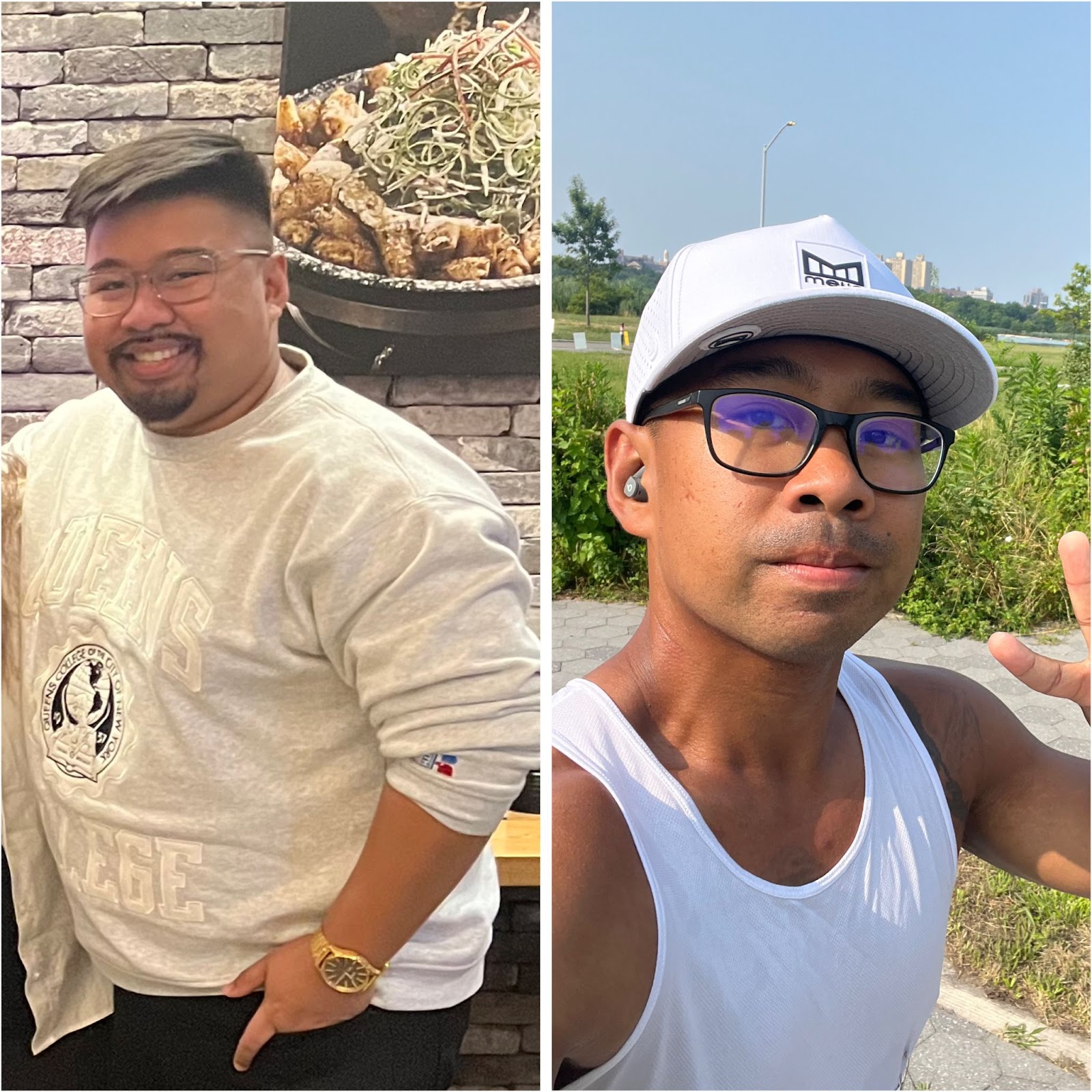
"Holy crap," he thought, staring down at his untied shoes. "I can't do a simple task like tie my shoe. How am I going to live a fulfilling life?"
The answer, as it turned out, would come from the most unexpected place: a game his retired aunt and uncle played in Queens.
The Weight of Success
To understand Ethan's physical transformation, you must first understand the particular kind of burnout that afflicts the entrepreneurs—a burnout that masquerades as achievement, that rewards self-destruction with venture capital, that mistakes exhaustion for dedication.
Ethan's journey into this world began conventionally enough: CUNY Queens College for accounting and finance, then a financial analyst position in Midtown Manhattan, working in treasury management. For six years, he climbed the corporate ladder at a company that would eventually go public, all while nurturing a side hustle as an event photographer that kept him working long after his 9-to-5 ended.
The photography business led him to his first startup, Community Gaming, which began as a humble Facebook group organizing tournaments for gamers in unused venues around New York. "We would organize and work with different venues that were unoccupied and be like, hey, can we have this space?" Ethan recalls. "And we'll bring 50 gamers to bring in their laptops, their switches, whatever it is."
What started as weekend tournaments for Call of Duty and Super Smash Bros. slowly grew into something bigger. By 2017, they were attracting attention from Verizon for 5G testing and Red Bull for esports partnerships. When COVID hit and gaming exploded, they built a tournament platform that paid out prizes in cryptocurrency, solving the logistical nightmares of PayPal transfers and fees.
They raised $18 million, with a $16 million Series A led by SoftBank in 2022. The team grew from five to over 100 employees across 28 countries. Ethan, who had joined as the fifth employee, found himself CFO of a rapidly scaling international business.
But success in the startup world comes with a particular tax on human wellness. The always-on culture, the pressure to scale infinitely, the blurring of personal and professional boundaries—it all takes a toll that balance sheets never capture.
"I think work became everything," Ethan reflects. "There came to a point where I was taking a look at my lifestyle, my habits, and my mental and physical health really wasn't the best."
The data told the story: his wearable devices tracked an average of four and a half hours of sleep per night throughout 2022. His weight climbed steadily as stress eating became routine and physical activity disappeared entirely. The social aspects of his life revolved around networking events, client dinners, and the kind of professional drinking that passes for relationship-building in startup culture.
Modern psychology has extensively documented the connection between physical and mental health. Still, the entrepreneurial world often treats the body as an inconvenience. A biological limitation to be overcome rather than a partner in performing sustainably.
The result is a generation of successful founders who achieve professional goals while systematically destroying their personal foundations.
The Democracy of Play
The modern American wellness industry would have you believe that transformation requires expensive equipment, personal trainers, and radical lifestyle overhauls. Ethan's story suggests something more subversive.
In August 2023, his uncle handed him a Joola Perseus. Like most beginners, Ethan's strategy was simple: hit the ball as hard as possible and hope for the best. What surprised him wasn't his immediate skill (there wasn't much) but the immediate sense of belonging.
"You see all different ages, all different backgrounds, really coming together in a public park," Ethan recalls. "You would never see three generations of people playing sports together. That doesn't happen too often."
This intergenerational mixing is pickleball's secret sauce, the quality that separates it from the age-stratified world of basketball courts and tennis clubs. Pickleball’s lower physical barriers—a smaller court, slower ball, and emphasis on strategy over athleticism—create a democracy of play.
Research in sports psychology consistently shows that intrinsically motivated exercise—activity pursued for enjoyment rather than external rewards—produces better long-term adherence and mental health outcomes. Unlike the intimidating fitness culture that dominates American wellness, pickleball offered Ethan something genuinely enjoyable from day one.
For someone whose adult athletic experience had been limited to pickup basketball games where his 5'6" frame put him at a constant disadvantage, pickleball represented liberation. Here was a sport where cleverness mattered more than height, where strategy could triumph over raw athleticism, where community mattered more than individual dominance.
"What made me keep coming back was just getting better day by day, having fun along the way," Ethan explains. "And the fact that I've met so many people, comparatively to all these other events or conferences that I've gone to on a business side, there's something so much more relatable and just more enthusiastic or genuine when you meet someone on a pickleball court."
The Environmental Shift
The weight-loss transformation began almost accidentally. When Ethan joined Lifetime Fitness in the winter of 2023, looking for indoor courts to feed his new addiction, he found himself surrounded by people pursuing their own versions of better. The environment was infectious.
"When you're in the gym and you see everyone either working out or playing pickleball, you just mentally want to be active," he explains. This environmental psychology—the idea that our surroundings shape our behaviors more than willpower alone—represents a crucial insight often overlooked in wellness advice.
The shift was environmental as much as intentional. Instead of corporate happy hours that could stretch past midnight, Ethan found himself at pickleball courts that closed at reasonable hours. Instead of stress-eating during late-night work sessions, he was meal-planning around morning matches. Instead of networking over cocktails, he was building relationships over shared learning experiences on the court.
"I was slowly seeing a shift in my life where instead of going to happy hours to K-Town or the bars, we were going to Pickleball Plus or all these pickleball courts and finding the next court that has lights so we could play after work," he recalls.
This substitution proved more powerful than any traditional diet or exercise program.
Rather than adding burdensome new habits to an already overwhelming schedule, Ethan was replacing destructive patterns with constructive ones. The social aspect remained—humans are fundamentally social beings who need connection—but the context shifted from drinking to community building.
The numbers spoke for themselves: twenty pounds lost in the first month, forty by the second. But weight loss was never the primary goal. The real transformation was neurochemical and psychological, a gradual rebuilding of reward systems around movement and community rather than alcohol and isolation.
"It wasn't so much weight loss-focused," Ethan insists. "It was really, hey, my friends Leo and Ben and Charlie are asking me to come to the court. I'm like, all right, let's go."
This distinction matters profoundly. Pickleball offered Ethan something genuinely enjoyable in the moment. Newfound friendships became its own reward, with fitness as a pleasant side effect rather than the torturous main event.
The Science of Social Fitness
What Ethan discovered intuitively, researchers have been documenting for decades: the profound connection between social connection, physical activity, and mental health. A landmark study from Harvard's Grant Study, which has followed subjects for over 80 years, found that the quality of relationships is the strongest predictor of life satisfaction and mental health—stronger than income, career achievement, or even physical health metrics.
The combination of social connection and physical movement creates what some researchers call a "compound effect" for mental wellness—each element amplifying the benefits of the other.
For Ethan, this compound effect manifested in ways both measurable and ineffable. His sleep improved from an average of 4.5 hours to a healthy 7-8 hours per night. His energy levels stabilized. His stress decreased. But perhaps most importantly, his relationship with his own body shifted from antagonistic to collaborative.
Over eight months, Ethan lost 85 pounds. But more significantly, he had rewired his brain's reward systems. Instead of seeking dopamine hits from work achievements or alcohol, his brain now craved the natural highs of movement and social connection.
By October 2023, he felt confident enough to make a radical decision: walking away from his startup, leaving behind the company he helped build.
The Journey Inward
Having never taken more than a week off work since he was 15, Ethan traveled to Japan and the Philippines.
"That trip was really about understanding how other people live," he explains. "There's more to life than the bubble that I lived in of a corporate 9 to 5. I really wanted to experience that."
In Japan, Ethan encountered a culture where longevity and community care are deeply valued, where the concept of "ikigai"—life purpose—encompasses far more than professional achievement. In the Philippines, he witnessed communities where social connection and simple pleasures took precedence over material accumulation.
"I've gone to other countries where people have so little but they're so happy," he reflects. "I didn't need all these fancy cars, fancy high-paying positions to really be happy."
This realization—that happiness might be simpler and more accessible than the startup world suggests—would prove crucial for the challenges ahead. When Ethan returned to New York in early 2024, he had a clearer sense of his values and priorities. Physical health, mental wellness, and genuine community had moved to the center of his life philosophy.
He continued playing pickleball, continued building the habits that had transformed his body and mind, and began planning his next entrepreneurial venture—this time focused on helping others find their own paths to sustainable wellness.
But life, as it often does, was preparing to test just how deep his transformation had gone.
Hope
The call came in August 2024, almost exactly a year after Ethan had first picked up a pickleball paddle. His sister Hope, a lawyer who had moved progressively further from family and community—from New York to Boston to rural New Hampshire—had taken her own life.
Even now, a year later, Ethan speaks about Hope with careful tenderness, aware that her story illuminates the very isolation his own journey had helped him escape. Hope was brilliant, accomplished, successful by conventional metrics. But success, as Ethan knew all too well, could coexist with profound loneliness.
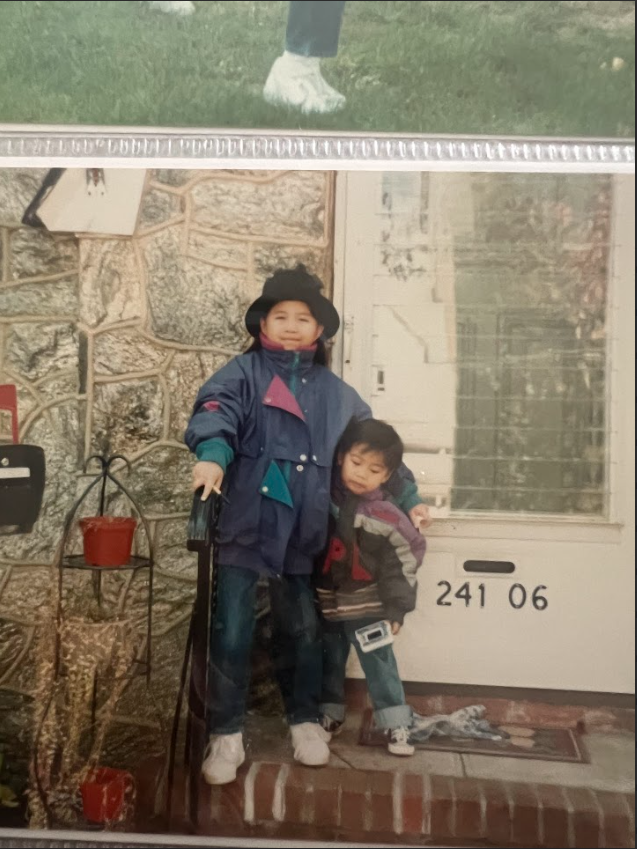
"She lived with me in New York, but then after college she moved away to Boston and then after going to law school in Boston, she moved to New Hampshire," Ethan explains quietly. "And in New Hampshire, there's not that many people and community wasn't there. I know she felt alone."
The tragedy of Hope's story—and the poignancy of her name—speaks to a broader crisis of connection in American life. The Surgeon General's 2023 advisory on loneliness as a public health crisis found that social isolation increases the risk of premature death by 26%, equivalent to smoking 15 cigarettes daily.
Ethan became the bearer of unbearable news, the one who had to tell his parents that their daughter was gone. The weight of that responsibility, combined with his own grief, sent him into the darkest period of his life.
"I was a complete mess," he admits. "I lost that energy about me. I was so depressed. I was questioning everything—my relationships, why am I even doing what I'm doing."
This is where the story could have ended. Another tale of American success undermined by personal tragedy, another entrepreneur whose professional achievements couldn't protect him from life's cruelest moments. But the community Ethan had built through pickleball became his lifeline.
"I truly believe that being active, having other people around you, and having that community is so important," he says, his voice carrying the weight of someone who has lived the alternative. "If it wasn't for the pickleball community and just for the people that have been there for me, I don't know where I'd be."
The support came in the form of both practical and emotional. Initially, Ethan didn't share his loss with his pickleball friends—the vulnerability felt too heavy, too complicated for relationships that had formed around shared joy rather than shared sorrow. But the simple act of continuing to play, to move his body, to be around other people, provided structure and distraction during his darkest days.
But when he was ready to open up, the community was there. Not just his longtime friends, but relative strangers who had become genuine supporters—people who had known him for months rather than years but had nonetheless become integral to his support system.
"These are strangers you just meet on the court for like two months and then now they're such an integral part of your life," he reflects. "I'm just so thankful to just meet so many kind-hearted people and have this sense of community."
The Healing Power of Presence
Pickleball provided the immediate distraction of physical activity and the deeper comfort of social connection. On the court, Ethan could lose himself in the strategy, the rhythm of play, the simple pleasure of moving his body through space. Off the court, he found people willing to listen when he was ready to share, and comfortable silence when he wasn't.
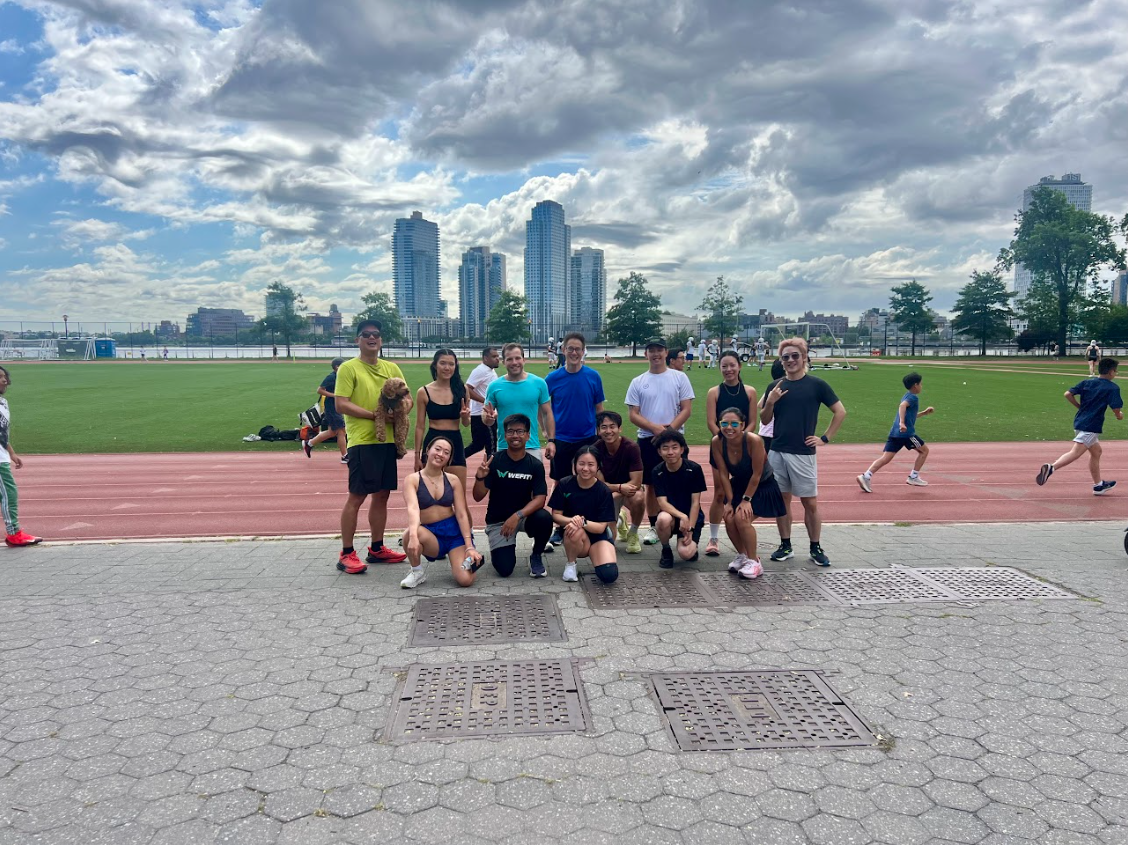
"Something that people in my community taught me is that being a little bit more vulnerable helps you establish deeper relationships and makes you grow closer," he reflects. "I really think that's important to have and have that community around you to feel that vulnerability."
Startup culture often rewards projection of confidence and success; showing weakness or struggle can feel like professional suicide. But the pickleball courts operated by different rules, where admitting struggle was met with support rather than judgment.
Building Bridges Through Technology
Today, Ethan channels his hard-won understanding of the connection between physical activity, social community, and mental health into WeFit Labs, a startup that gamifies fitness through social connection and wearable technology. The platform allows friends to compete on metrics like sleep quality and daily steps, with features for organizing group activities—pickleball games, running clubs, basketball pickups.
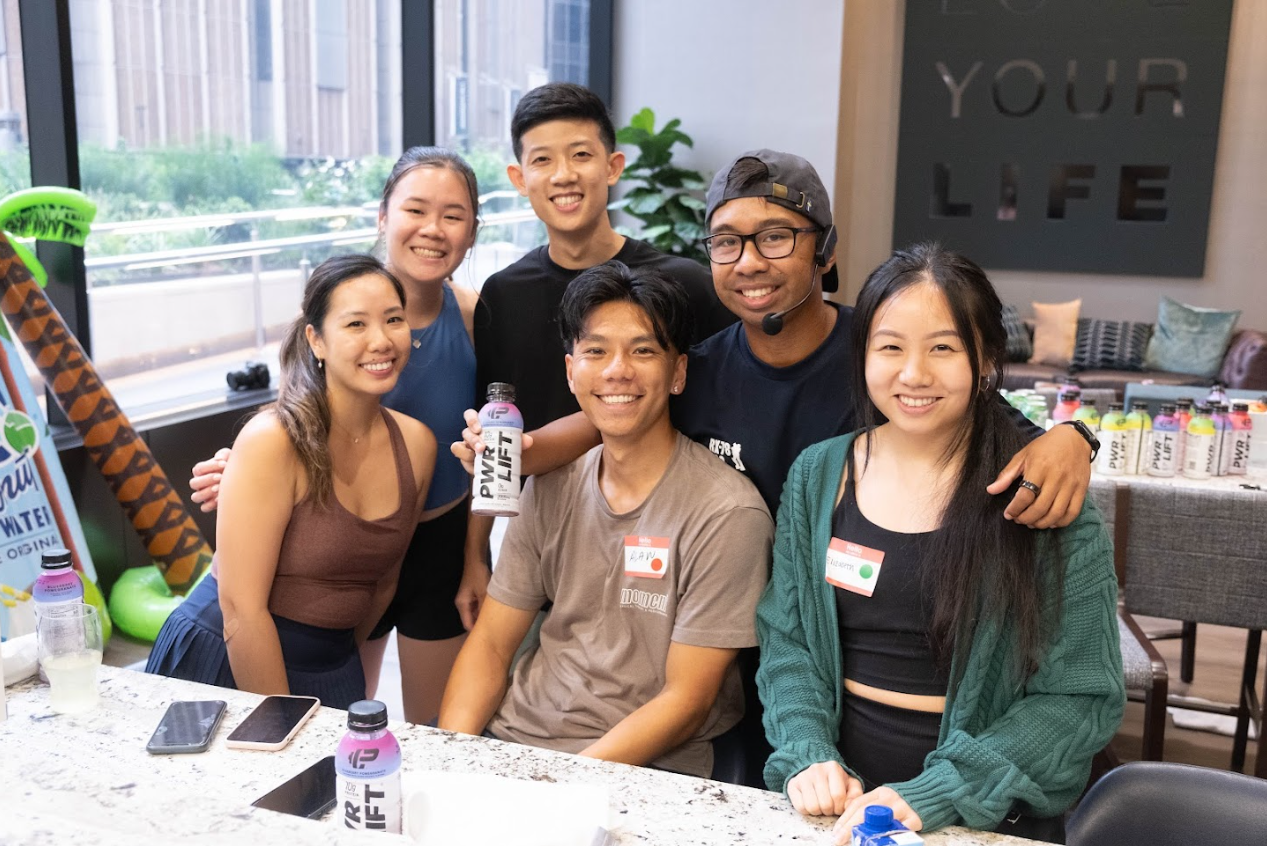
But unlike many fitness apps that focus on individual achievement and comparison, WeFit Labs emphasizes community building and mutual support. The goal isn't to shame users into working out, but to recreate digitally what Ethan found organically: a social ecosystem where fitness becomes fun, where showing up for yourself means showing up for others.
"Over 100 million Americans have a wearable device, but they're not using it in a social or engaging fashion," Ethan explains. "We want to help with that."
Working with co-founder Eric, a former engineering lead at Twitter, Facebook, and LinkedIn, Ethan is building technology designed to scale the lessons of the pickleball court. Their acceptance into Antler's fall residency program—a prestigious VC fund that focuses on early-stage founders—validates both the business potential and social need for their approach.
In an age of increasing isolation—highlighted by rising rates of depression and anxiety, particularly among young adults—Ethan's story suggests that solutions might be simpler and more accessible than we imagine. Not necessarily pickleball specifically, but the elements it represents: accessible physical activity, intergenerational community, low barriers to entry, and genuine fun.
The Ripple Effect
The impact of Ethan's transformation extends far beyond his own life. His father, now retired in Ireland, has started playing pickleball there, becoming one of the sport's early evangelists across the Atlantic. His mother texts him about reaching her daily step goals. Friends and colleagues have begun asking about his "secret" to sustainable wellness.
"I want to be a message of hope to some people," Ethan explains. "I completely understand what it is like to be bigger. I know it's tough, especially for health reasons. Some people have to be put on medication. Some people have to go through surgeries, and there could be more complications. But my overall aspect is that people just move a little bit more, meet some friendly faces along the way and have that sense of community."
This ripple effect illustrates how individual transformation can become social transformation. When someone models a different way of being—prioritizing health without obsession, building community without exclusion, finding joy in movement rather than punishment—it gives others permission to explore similar paths.
The Court as Sanctuary
As Ethan prepares for his WeFit Labs launch event at Lifetime Fitness—a celebration of movement and community that perfectly synthesizes his journey—he carries with him both the memory of his sister and the lessons of the courts. Hope's story serves as a reminder of what isolation can cost; the pickleball community represents what connection can provide.
In a world that often feels fragmented and disconnected, pickleball offers something special: a space where community forms naturally, where movement brings joy rather than punishment, where the simple act of showing up can change everything.
For Ethan, it already has.
The morning after Hope's first anniversary, Ethan will likely be on a court somewhere, paddle in hand, surrounded by the community that helped save his life. He'll be carrying her memory forward through his commitment to ensuring others find the connections that sustain hope—not as a person, but as a practice, a way of being in the world that honors both loss and possibility.
In the end, that may be pickleball's greatest gift: not just the promise of better physical health or even stronger community, but the reminder that transformation is always possible, that it's never too late to choose a different way of being, and that sometimes the most profound changes begin with the simplest acts—like picking up a paddle and saying yes to play.
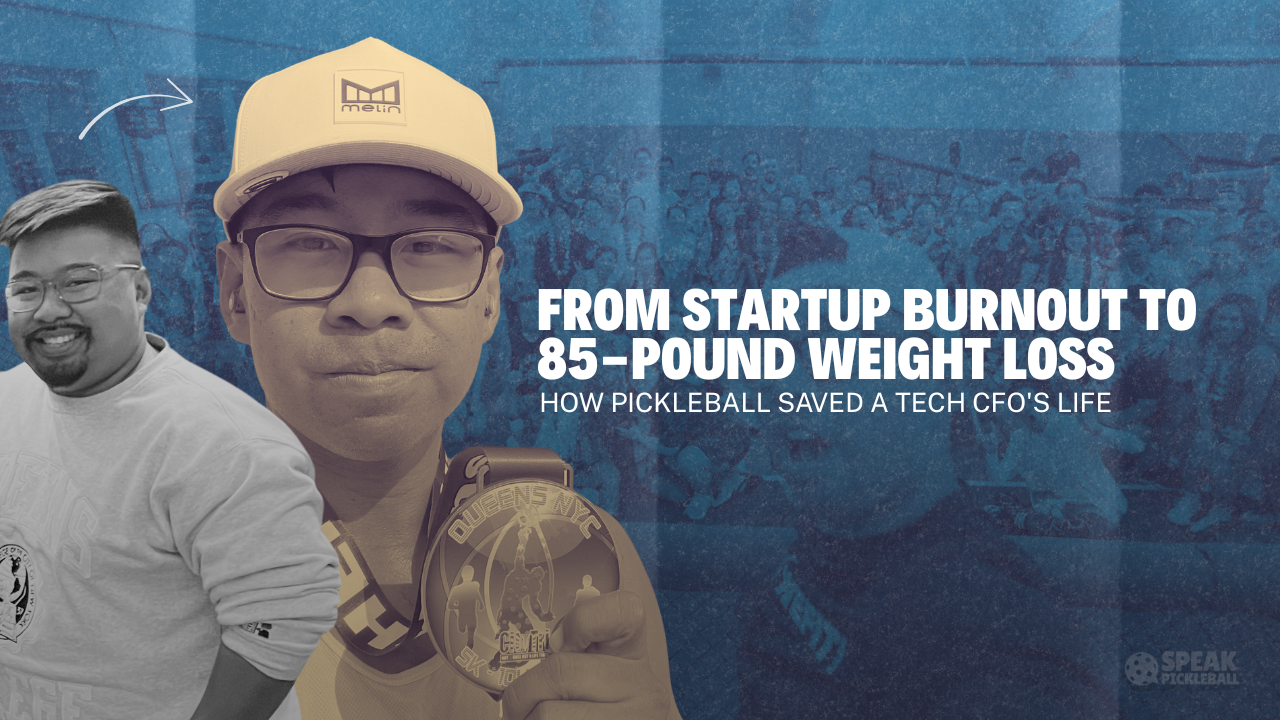
.svg)
Lorem ipsum dolor sit amet, consectetur adipiscing elit. Suspendisse varius enim in eros elementum tristique. Duis cursus, mi quis viverra ornare, eros dolor interdum nulla, ut commodo diam libero vitae erat. Aenean faucibus nibh et justo cursus id rutrum lorem imperdiet. Nunc ut sem vitae risus tristique posuere.
Lorem ipsum dolor sit amet, consectetur adipiscing elit. Suspendisse varius enim in eros elementum tristique. Duis cursus, mi quis viverra ornare, eros dolor interdum nulla, ut commodo diam libero vitae erat. Aenean faucibus nibh et justo cursus id rutrum lorem imperdiet. Nunc ut sem vitae risus tristique posuere.